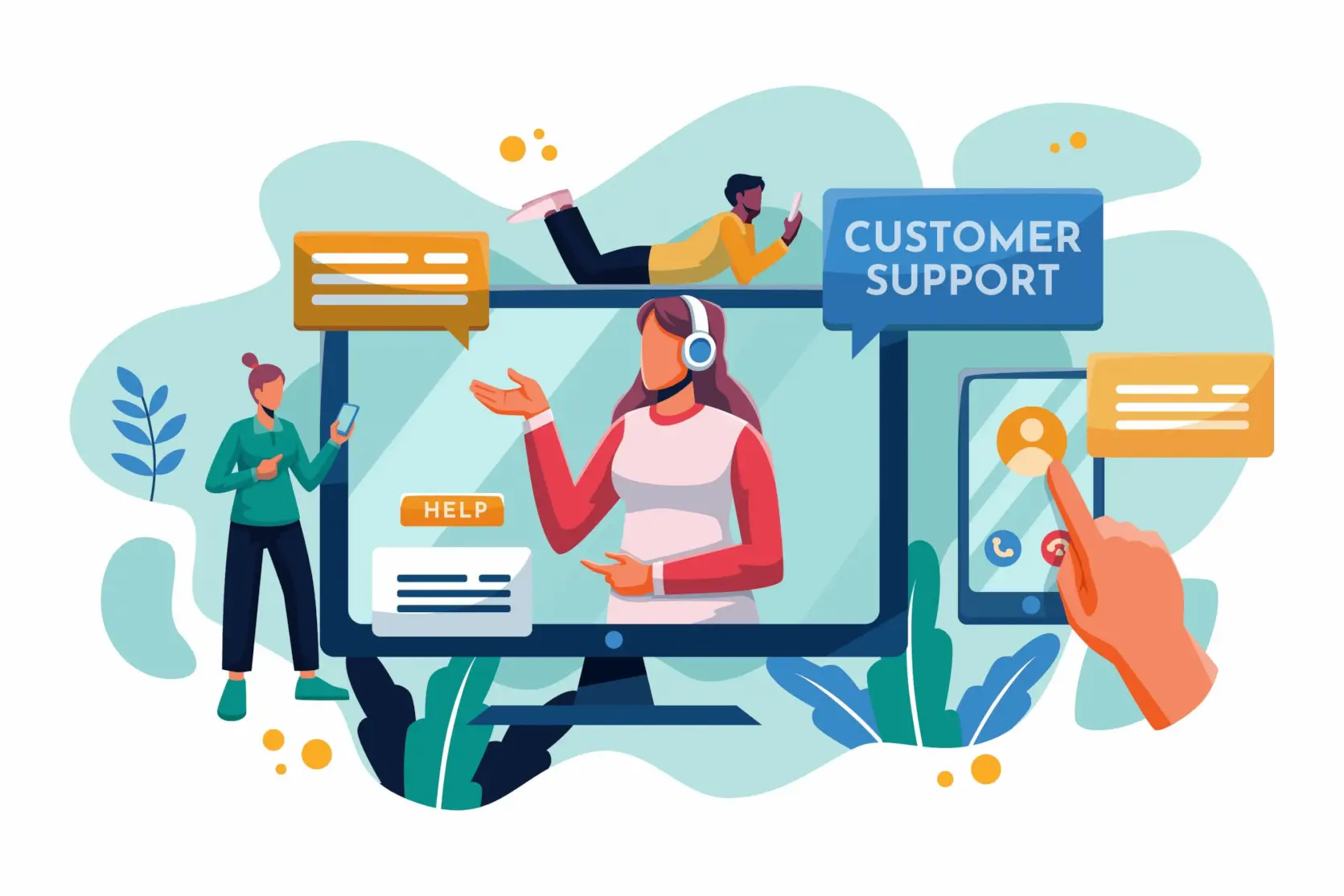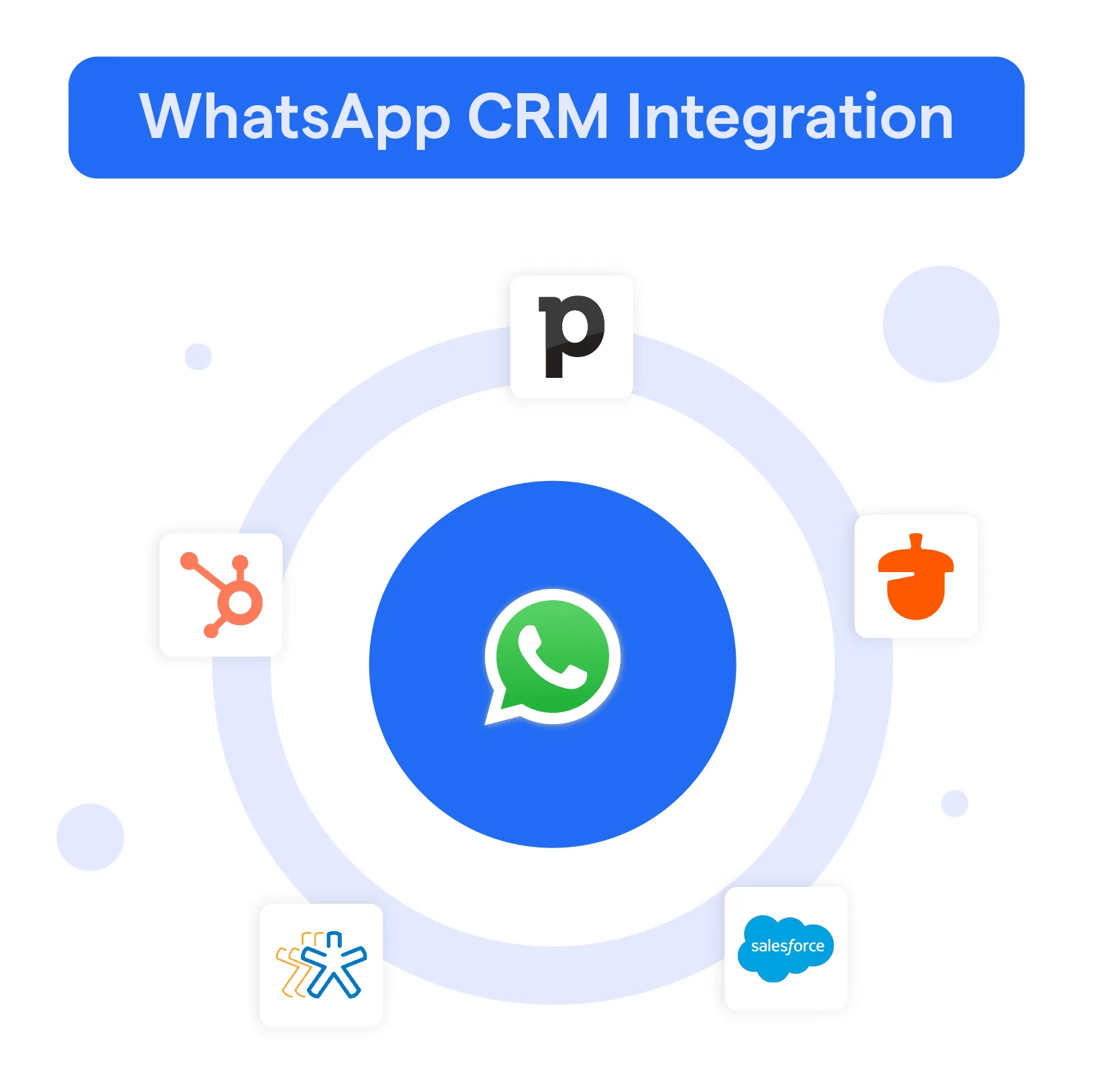What is WhatsApp CRM Integration?
WhatsApp CRM Integration is the process of connecting the popular messaging app, WhatsApp, with Customer Relationship Management (CRM) software.
This integration allows businesses to manage customer interactions, sales, marketing, and support activities through WhatsApp, providing a seamless and efficient communication channel.
Integrating WhatsApp with CRM systems enables businesses to engage with their customers more effectively, streamline communication, improve sales and marketing efforts, and foster efficient team collaboration.
This integration is especially important in today's digital age, where customers expect instant and personalized communication.
Key Features of WhatsApp CRM Integration
Some of the key features of WhatsApp CRM Integration include:
Centralized messaging inbox for managing customer conversations
Automated responses and message templates
Contact and lead management
Integration with other sales, marketing, and support tools
Analytics and Reporting
Why Integrate WhatsApp with CRM?
Here are the different reasons why one should integrate WhatsApp with CRM
Enhanced Customer Experience
Integrating WhatsApp with CRM allows businesses to provide a faster and more personalized customer experience.
Customers can receive instant responses to their queries, and businesses can easily manage and track customer interactions, ensuring that no conversation goes unnoticed.
Streamlined Communication
WhatsApp CRM Integration simplifies communication by centralizing all customer interactions in one place.
This makes it easier for businesses to manage and respond to customer inquiries, reducing response times and ensuring a consistent brand experience.
Improved Sales and Marketing

By integrating WhatsApp with CRM, businesses can track customer interactions, identify sales opportunities, and create targeted marketing campaigns.
This helps businesses to better understand their customers' needs and preferences, leading to improved sales and marketing results.
Efficient Team Collaboration
Integrating WhatsApp with CRM enables team members to collaborate more effectively by sharing customer information, notes, and tasks.
This ensures that everyone is on the same page and can work together to provide the best possible customer experience.
While integrating WhatsApp with CRM, one can also integrate WhatsApp with Chatbot to automate various tasks- For so BotPenguin is good to go
Along with WhatsApp BotPenguin offers Chatbot for other platforms also-
How to Integrate WhatsApp with CRM?
There are the simple steps to follow in order to integrate WhatsApp with CRM
Choosing the Right CRM Platform
The first step in integrating WhatsApp with CRM is selecting a CRM platform that supports WhatsApp integration.
Many popular CRM platforms, such as Salesforce, HubSpot, and Zoho CRM, offer native or third-party integrations with WhatsApp.
Integration Methods
There are several methods for integrating WhatsApp with CRM, including native CRM integrations, third-party integration solutions, and custom API integrations.
Businesses should choose the integration method that best suits their needs and resources.
Configuration and Customization
Once the integration method has been chosen, businesses need to configure and customize the integration to suit their specific requirements.
This may involve setting up automated responses, creating message templates, and configuring data synchronization between WhatsApp and the CRM system
When to Implement WhatsApp CRM Integration?
There is right time for everything here is the reason when one should implement WhatsApp CRM Integration
Evaluating Business Needs
Businesses should consider implementing WhatsApp CRM Integration when they have a clear need for improved customer communication and engagement.
This may be due to a growing customer base, increased reliance on digital channels, or a desire to improve sales and marketing efforts.
Identifying Customer Communication Channels
Before implementing WhatsApp CRM Integration, businesses should assess their existing customer communication channels and determine whether WhatsApp is an appropriate addition.
Factors to consider include customer preferences, communication volume, and the potential benefits of integrating WhatsApp with CRM.
Assessing the Benefits and Costs
Businesses should weigh the potential benefits of WhatsApp CRM Integration against the costs of implementation, including software, training, and ongoing maintenance.
This will help to determine whether the integration is a worthwhile investment.
Who Can Benefit from WhatsApp CRM Integration?
WhatsApp CRM Integration can be beneficial for various Industries and Businesses
Small and Medium-Sized Businesses
Small and medium-sized businesses can benefit from WhatsApp CRM integration by improving customer engagement, streamlining communication, and enhancing team collaboration.
Large Enterprises
Large enterprises can leverage WhatsApp CRM integration to manage customer interactions at scale, ensuring a consistent and personalized experience across all touchpoints.
Customer Support Teams

Customer support teams can use WhatsApp CRM integration to provide faster and more efficient support, leading to higher customer satisfaction and loyalty.
Types of WhatsApp CRM Integration
There are three types of WhatsApp CRM Integration-
Native CRM Integrations
Some CRM platforms offer native WhatsApp integration, allowing businesses to connect the messaging app directly to their CRM system without the need for additional tools or software.
Third-Party Integration Solutions
Third-party integration solutions enable businesses to connect WhatsApp with their CRM system using pre-built connectors or integrations available in the CRM platform's marketplace.
Custom API Integrations
Custom API integrations involve developing a custom solution to connect WhatsApp with a CRM system, providing businesses with more control and flexibility over the integration process.
Popular CRM Platforms with WhatsApp Integration
Here are the Popular CRM Platforms good to go for WhatsApp Integration-
Salesforce
Salesforce offers WhatsApp integration through its Salesforce Channel Integration Framework, allowing businesses to manage customer interactions across multiple channels, including WhatsApp.
HubSpot
HubSpot supports WhatsApp integration through third-party solutions available in its App Marketplace, enabling businesses to connect the messaging app with their HubSpot CRM system.
Zoho CRM
Zoho CRM integrates with WhatsApp through its native integration feature, allowing businesses to send and receive WhatsApp messages directly within the CRM platform.
Freshsales
Freshsales offers WhatsApp integration through third-party solutions available in its marketplace, enabling businesses to connect the messaging app with their Freshsales CRM system.
Best Practices for WhatsApp CRM Integration
Best Practices to follow for WhatsApp CRM Integration
Ensuring Data Privacy and Security
Businesses should ensure that their WhatsApp CRM integration complies with data privacy and security regulations, such as GDPR and HIPAA.
Optimizing Communication Channels
Businesses should optimize their communication channels by using WhatsApp CRM integration to complement, rather than replace, existing customer communication methods.
Training and Support
Businesses should provide training and support to their teams to ensure they can effectively use WhatsApp CRM integration to improve customer communication and collaboration.
Choose the Right CRM Platform
Selecting the appropriate CRM platform is crucial for a seamless WhatsApp integration. Consider your business requirements, budget, and compatibility with existing systems.
Opt for a CRM that offers native WhatsApp integration or supports third-party tools to facilitate the process.
Automate Customer Support with Chatbots
Leveraging chatbots and AI-powered tools can significantly improve customer support. Automate responses to frequently asked questions, appointment scheduling, and order updates.
This not only saves time but also enhances the customer experience by providing instant assistance.
Maintain Personalized and Engaging Conversations
While automation is helpful, it's essential to retain a human touch in your interactions. Personalize messages using customer data from your CRM, and ensure your team is available to handle complex queries.
Striking the right balance between automation and human interaction will make customers feel valued and well-supported.
Monitor and Analyze Data for Continuous Improvement
Utilizing the data collected through WhatsApp CRM Integration is vital for continuous improvement. Monitor customer interactions, track response times, and identify trends to optimize your communication strategy.
Analyzing this data will help you make informed decisions, improve customer satisfaction, and ultimately drive business growth.
Frequently Asked Questions (FAQs)

What is WhatsApp CRM Integration?
WhatsApp CRM Integration connects your WhatsApp Business account with your Customer Relationship Management (CRM) system, streamlining communication and enhancing customer support.
How does WhatsApp CRM Integration benefit businesses?
By integrating WhatsApp with your CRM, you can manage customer interactions, automate responses, track conversations, and improve overall customer experience through a single platform.
Can I integrate WhatsApp with any CRM system?
Most CRM systems support WhatsApp integration, either natively or through third-party tools. Popular CRM systems like Salesforce, HubSpot, and Zoho offer WhatsApp integration options.
Is WhatsApp CRM Integration secure?
WhatsApp CRM Integration maintains security through end-to-end encryption, ensuring that messages remain confidential and protected from unauthorized access.
Can I automate customer support with WhatsApp CRM Integration?
Yes, you can automate customer support by using chatbots and AI-powered tools, allowing for instant responses and improved customer satisfaction.

